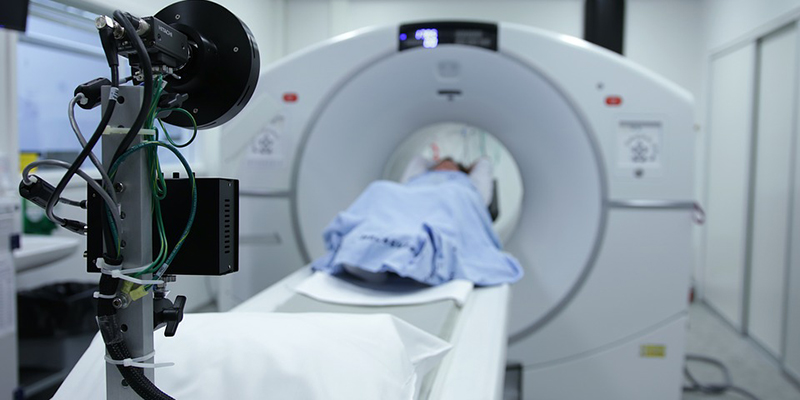AI revolution within the NHS could make ‘bedside robots’ a reality
A new report looking into improving the sustainability of the NHS, published by the Institute for Public Policy Research (IPPR) and Lord Darzi, former health minister, predicts an AI revolution within the NHS is nigh and claims AI robots could save the NHS £12.5bn a year.
This expected artificial revolution could see tasks that have been traditionally carried out by staff – GP’s, nurses, administration and even surgeons – instead being completed by ‘bedside robots’. These robots could potentially complete tasks from administrative duties, to feeding patients, to more accurate diagnosis of some diseases.
It does seem inevitable as technology is constantly evolving and improving, that AI will be able to more accurately and quickly diagnose diseases in patients than humans can. For example, a research team in Germany has already developed an AI system that was able to find 8.4% more melanomas than dermatologists – the dermatologists found 86.6% of malignant melanomas, while the AI found 95%.
But does this mean that AI would be better at other fundamental aspects of medical work than humans?
For example, this potential introduction of AI robots to the NHS raises the question of how patients would react to being triaged, rehabilitated, treated, fed and walked by robots instead of humans. Hospital care becoming impersonal and – literally – robotic could easily have negative ramifications for the patient, as feeling actively cared for is an important part of recovery that may well feel lacking with a robotic attendant. A human doctor caring and helping a patient through a gruelling rehabilitation process seems far more likely to have success than a robotic voice encouraging you to please take another step.
Tracy Bullock, Chief Executive of Mid Cheshire Hospitals Trust also highlighted concerns over ‘bedside robots’: “When a patient is being fed, you are not just feeding them, you are assessing their alertness, emotional state, ability to engage, skin condition, respiratory rate and so on.”
Another concern over the possible AI revolution within the NHS is over staff jobs; that if a robot suddenly takes over tasks, will the person who used to complete those tasks become redundant?
Lord Darzi claims that instead of replacing human staff, the robots would be designed to complement the skills of nurses and doctors by completing administrative tasks – although that then begs the question; doesn’t that mean administrative jobs would be lost?
Bullock has voiced concerns over staff jobs if this AI revolution goes ahead: “Would there be redundancies? I would hope not as we are woefully short of staff. But if the savings do not come from staff where are they coming from? I’m sure there will be some from quicker treatments and other efficiencies. But £12bn?”
However there is doubt over whether or not the NHS could afford to reduce its workforce, even with the implementation of robots, as Chief Executive of the Wrightington, Wigan and Leigh NHS trust, and former Department of Health’s director of human resources for the NHS, Andrew Foster stated: “We currently have at least 100,000 vacancies in the NHS with demand rising all the time. I think that redundant NHS staff is a long way from being a significant concern.”
What is perhaps most incongruous about this issue, is that while the development of AI robots is being discussed, an alarming number of NHS hospitals are being forced to use out of date, X-ray machines, MRI, ultrasound and CT scanners. Figures found by Jonathan Ashworth, Shadow Secretary of State for Health and Social Care, show that of 892 X-ray machines over ten years old currently in use, 139 were past their replacement date. 134 ultrasound machines, ten MRI scanners, and ten CT scanners also over a decade old should also have already been replaced.

Ashworth stated: “Eight years of Tory austerity funding imposed on our NHS have led to a backlog of £5bn of repairs to crumbling hospitals and old equipment that in some cases is decades past its sell-by date.” The insufficiency of NHS funding has meant that the NHS has been forced to use money intended for the repair and replacement of hospitals and machines for the day-to-day running costs of hospitals instead.
The likelihood of NHS hospitals suddenly being equipped with advanced AI robots does seem laughably slim when many don’t even have the money to replace vital out of date equipment. So perhaps what the funding should be focusing on is not robotic breakthroughs, but making sure the NHS is supplied with the basic equipment it direly needs.
Developing technology and AI that is better and faster at catching and diagnosing life-threatening diseases such as cancer and pneumonia is undoubtedly a good thing, and the potential saving is alluring, but introducing robotic workers into the NHS seems as though it could well cause as many problems as it attempts to solve.










